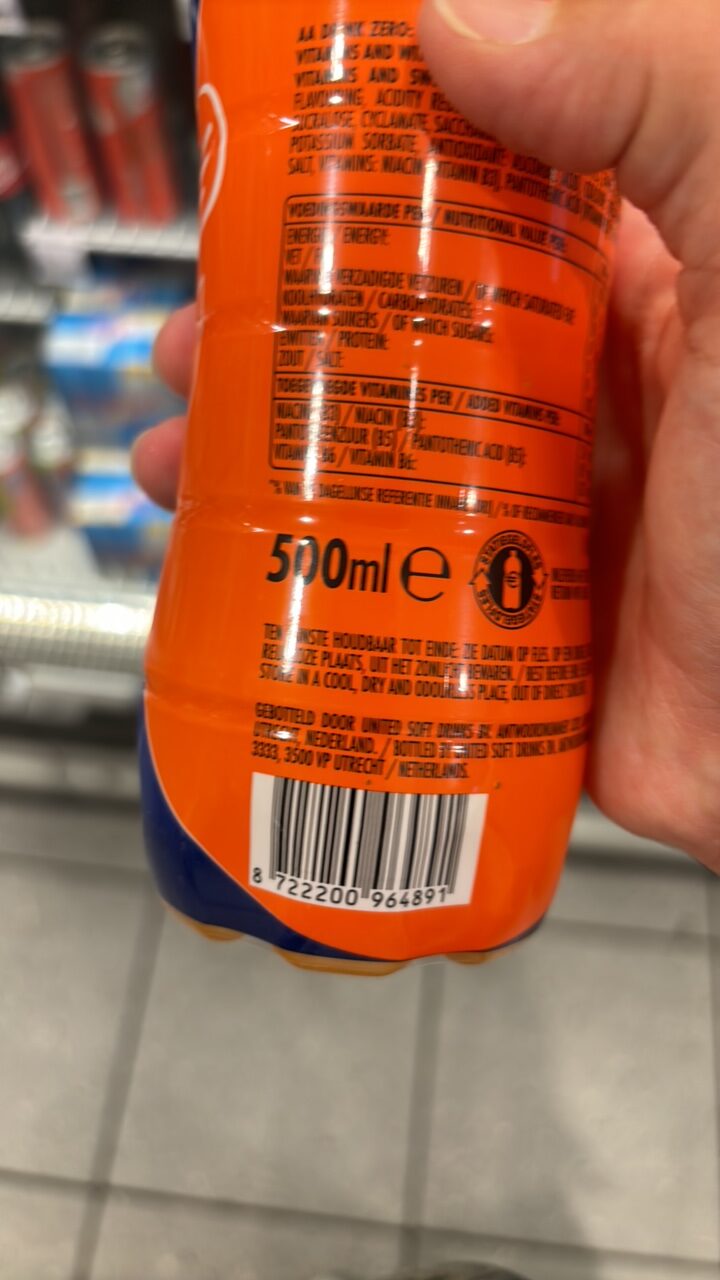
Barcode: 17280949
aa drink zero
HALAL
📝 Reason: Based on the data provided, most ingredients in ‘aa drink zero’ are Halal except ‘vitamins’, which is marked Doubtful because its source (synthetic/animal-derived) is not specified. In Islamic jurisprudence, ambiguous ingredients with unknown origins are given a ‘doubtful’ status per precautionary principle (Quran 5:3, IFANCA advice). The lack of clear Halal certification or logo for the vitamin blend justifies Status 2. If any ingredient is Doubtful, Halal_Result must also be 2, overriding all others, as per the provided rules.
🏷️ Category: Soft Drinks
📄 Certificates: 500Ml, Vegetarisch, Vegan
Ingredients:
Details
Understanding the Halal Status of aa drink zero
When consumers consider whether a product meets Halal standards, it’s essential to investigate its ingredients and their sources. In this post, we’re diving deep into the Halal status of aa drink zero, a refreshing soft drink that has gained popularity among health-conscious individuals.
Halal Status Overview
According to our analysis, aa drink zero is classified as HALAL, with some caveats. It consists primarily of ingredients that are mostly Halal but includes a component—vitamins—that raises questions regarding its source. In such cases of ambiguity, Islamic jurisprudence defaults to caution, making the overall Halal status a crucial consideration for consumers following dietary guidelines.
Ingredients Breakdown
Let’s explore the ingredients listed in aa drink zero:
- Water: Water is inherently Halal in all circumstances unless it is contaminated with haram substances. (Source)
- Acidity Regulator: This is a generic term that often refers to acidic substances, such as citric acid. These additives are typically Halal unless derived from a haram source. (Source)
- Potassium Sorbate (E202): This is a chemically synthesized preservative and is noted as Halal on various Halal E-Codes lists. (Source)
- Salt: As a mineral, salt is always considered Halal unless it is contaminated. (Source)
- Vitamins: The term ‘vitamins’ is broad and can include both natural and synthetic sources. Some vitamins, like Vitamin D, can come from animal sources. Since the specific sources are not defined, the vitamins in aa drink zero hold a ‘doubtful’ status. (Source)
- Niacin: Also known as Vitamin B3, it is mostly produced synthetically and is compliant with Halal standards. (Source)
- Pantothenic Acid: Known as Vitamin B5, it is generally produced synthetically, making it Halal. (Source)
- Vitamin B6: This vitamin is usually synthesized chemically and is regarded as Halal. (Source)
Brand and Category Context
aa drink zero falls under the soft drinks category, appealing to a broad audience looking for refreshing beverage options. The product is marketed as suitable for vegetarians and vegans, adding to its attractiveness among health-conscious consumers. However, the lack of clear Halal certification or logo for the vitamin blend necessitates prudent consideration.
Conclusion
To summarize, aa drink zero is predominantly Halal but contains ingredients that lead to a ‘doubtful’ status due to uncertainties surrounding the source of its vitamins. As per Islamic dietary laws, if any ingredient is classified as Doubtful, then the overall Halal Result must also reflect a Status of 2. Therefore, it is prudent for consumers seeking a fully Halal beverage to weigh these factors carefully.
For those who are health-conscious and mindful of dietary restrictions, aa drink zero can still be a refreshing choice with caution regarding its vitamin content.
